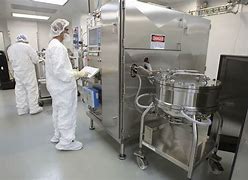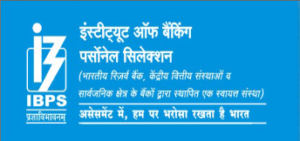Table of Contents
Introduction
Becoming a ceramic engineer in India can be an exciting and rewarding career path for individuals who are interested in working with materials and manufacturing processes. Ceramic engineers play a crucial role in designing and producing various ceramic products used in industries such as construction, electronics, aerospace, and healthcare. This article will guide you through the steps to become a successful ceramic engineer in India.
Understanding Ceramic Engineering
Ceramic engineering is a specialized branch of material engineering that focuses on the study, design, and development of ceramic materials and products. Ceramics are non-metallic, inorganic materials that are typically made by heating natural clay minerals at high temperatures. Ceramic engineers are involved in creating a wide range of products like tiles, glass, semiconductors, refractories, and bioceramics used in medical implants.
Educational Requirements
To pursue a career in ceramic engineering, a strong educational foundation is essential. Aspiring ceramic engineers must have a background in science and mathematics during their high school education to lay the groundwork for further studies in engineering.
Pursue a Bachelor’s Degree in Ceramic Engineering
After completing high school, students can enroll in a Bachelor’s degree program in ceramic engineering at various engineering colleges and universities in India. During the four-year undergraduate program, students will study courses related to material science, thermodynamics, manufacturing processes, and ceramics technology. Practical laboratory work and projects are also a crucial part of the curriculum to gain hands-on experience.
Gain Practical Experience through Internships
While pursuing a bachelor’s degree, it is highly beneficial for students to participate in internships and industrial training programs. These opportunities allow students to work in real-world settings and understand the challenges faced in the ceramic industry. Additionally, internships provide exposure to advanced technologies and foster connections with industry professionals.
Master’s Degree for Advanced Specialization
For those aspiring to take their ceramic engineering careers to the next level, a master’s degree is recommended. Pursuing a Master’s in Ceramic Engineering or a related field allows individuals to specialize in a particular area, such as advanced ceramics, nanotechnology, or ceramic coatings.
Develop Technical Skills
Ceramic engineers need a strong set of technical skills to excel in their profession. Proficiency in computer-aided design (CAD) software, knowledge of materials testing techniques, and familiarity with advanced manufacturing processes are essential for success in this field.
Stay Updated with Industry Trends
The field of ceramic engineering is constantly evolving with new technological advancements. It is essential for aspiring ceramic engineers to stay updated with the latest industry trends and innovations. Reading research papers, attending conferences, and participating in workshops can provide valuable insights and knowledge.
Join Professional Organizations
Joining professional organizations related to ceramic engineering can be highly beneficial for career growth. Organizations like the Indian Ceramic Society offer networking opportunities, access to research publications, and participation in industry events.
Networking and Building Connections
Networking plays a vital role in any engineering career. Building connections with industry experts, professors, and alumni can open doors to job opportunities and collaborations in research projects.
Consider Further Research or Ph.D. Programs
For individuals passionate about research and academia, pursuing a Ph.D. in ceramic engineering is a viable option. A doctorate allows individuals to contribute to cutting-edge research and development in the field.
Job Opportunities for Ceramic Engineers
After completing the educational requirements, aspiring ceramic engineers can explore various job opportunities in India’s ceramic industry. Common job roles include ceramic process engineer, quality control manager, production supervisor, and research scientist in government organizations, private companies, and research institutions.
Salary Outlook for Ceramic Engineers in India
Ceramic engineering is a promising field with excellent salary prospects. The salary varies based on experience, education, and the employer. Entry-level ceramic engineers can expect a competitive starting salary, and experienced professionals can command higher remuneration.
Challenges in the Field of Ceramic Engineering
Like any other profession, ceramic engineering comes with its own set of challenges. Dealing with high-temperature processes, finding cost-effective solutions, and meeting stringent quality standards are some of the common challenges faced by ceramic engineers.
Future Scope of Ceramic Engineering in India
The future of ceramic engineering in India looks promising, driven by advancements in technology and the growing demand for ceramic products across industries. As India aims to become a global manufacturing hub, ceramic engineers will play a significant role in shaping the country’s growth.
Conclusion
Becoming a ceramic engineer in India requires a strong educational background, practical experience, technical skills, and continuous learning. With dedication and passion, aspiring ceramic engineers can contribute to the development of innovative ceramic products that impact various sectors.
FAQs
Q1. Is a master’s degree necessary to become a ceramic engineer in India?
While a bachelor’s degree is sufficient for entry-level positions, a master’s degree offers advanced specialization and better career prospects.
Q2. What industries employ ceramic engineers in India?
Ceramic engineers find employment in industries such as construction, electronics, aerospace, healthcare, and telecommunications.
Q3. Are internships necessary during a bachelor’s degree in ceramic engineering?
Internships provide practical experience and exposure to real-world challenges, making them highly beneficial for aspiring ceramic engineers.
Q4.What is the future scope of ceramic engineering in India?
The future of ceramic engineering in India is promising, with increasing demand for ceramic products and advancements in technology.
Q5. How can I stay updated with the latest trends in ceramic engineering?
Joining professional organizations, attending conferences, and reading research publications can keep you updated with industry trends.




